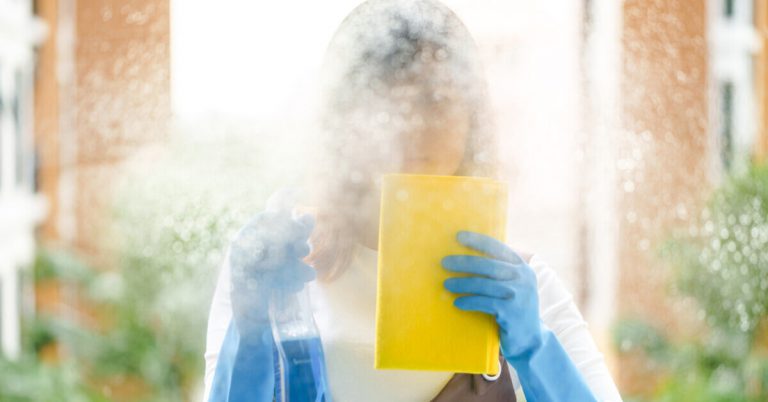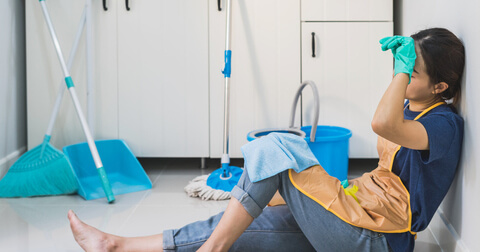You’ve just brought a total stranger into your home. For the next 1-2 years, she will work for you, operate your household appliances, cook your meals, and look after your family. However, she is likely to be from a foreign culture, practise a different religion, and speak a different native language. Sounds like a scenario ripe with potential for strained relationship, doesn’t it? But this is exactly what happens when you hire a foreign domestic worker/helper (FDW). Luckily, there are simple things you can do to build a good employer-employee relationship with her, even if it isn’t a match “maid” in heaven from the start.
1. Know your obligations as an employer
The basic foundation for a harmonious relationship with your foreign domestic helper is to ensure that you know your obligations as an employer.
This includes providing suitable accommodation, and setting reasonable working hours with a weekly rest day, or, if she chooses to forgo her rest days, adequately compensating her for it. Of course, the monthly salary should also be paid on time.
Besides encouraging a work environment that is safe, fair and productive, employers are also responsible for the welfare of your domestic helper, and you should get adequate insurance coverage for her.
#TiqOurWord Tiq Maid Insurance protects FDW with coverage for personal accident, hospitalisation and surgical expenses, and repatriation expenses in case of unfortunate events. Employers can also avoid potential costs and expenses such as termination and re-hiring expenses, and wages and levy reimbursement.
2. Set clear (and reasonable) expectations on tasks
In the corporate world, people create work plans and set targets. These align people in the company and bring them onto the same page. Similarly, it is a good practice to set clear expectations for your domestic helper.
To avoid ambiguity, you can draw up a timetable, or else simply create a list of tasks to be carried out each day and allow your maid to plan her own timetable.
When setting expectation and tasks, bear in mind that some maids may not be familiar with modern household appliances (some smart home appliances can be intimidating with their featured-packed symbols!).
Some first-timer FDWs might not even have stayed in a high-rise flat before. So do be patient, and give them time to learn and adapt. Bear in mind the old saying. “Teach a man to fish, and you’ve fed him for a lifetime.” Well, if you guide your domestic helper well, you and your household members will be well taken care of!
3. Communicate constantly and let her feel included
Proper communication is key to building trust and a healthy relationship, which is important since your domestic helper will be staying together with you and your family. It’d also be good to let her feel included by sharing with her our local culture, norms and what’s happening at home and beyond.
Not so long ago, it has been found that FDWs make up the bulk of foreigners in Singapore who take loans from licensed and unlicensed moneylenders, leading to many maids in debt. If your domestic helper has a better idea of what a loan entails, she might be able to avoid getting into such situations. In such cases, ignorance is not bliss!
4. Be as understanding and appreciative as possible
Treating your domestic helper with kindness and understanding is also key to fostering a great employer-employee relationship. She will be appreciative when she sees that you care about her welfare, which will help her to be even more dedicated to her work.
Like the news of the Filipino maid who created face masks to show her appreciation to the employers she has happily worked with for 35 years. This mutual appreciation doesn’t only create a harmonious living condition, but it also ensures that the employer can provide for the maid and the maid can give 100% in taking care of the employer.
In fact, did you know that May is the Helper Appreciation Month? It’s the month to say thanks to your maid for their services and raise awareness for maids’ working condition, sacrifices, and social challenges.
#TiqOurWord Your domestic helper has left her home and family to make a living overseas. When you protect her with Tiq Maid Insurance, you are by extension protecting her family as well. Knowing that you have chosen a good maid insurance plan for her goes a long way.
Setting the record straight
Many of us have probably forgotten or are unaware of the history of maids but it may do good to know that domestic help used to be a common household service such that in the Victorian era (mid – late 19th century) it was the second largest category of employment in England and Wales!
Then, technology advancements and changing society’s values that see women entering the workforce created a shift in roles… but hey! Somebody still needs to wash those clothes! Cooking, laundry, cleaning and childcare are indispensable household chores for everyone, unless you hire domestic help. It is a legit profession, and domestic helpers should be treated equally and with respect for the work that they do.
The word ‘maid’ comes from the word ‘maiden’, which generally refers to a girl or unmarried young woman. Considering the mixed demographics of foreign domestic workers (FDW) in Singapore, it may not always be right to call them ‘maid’!
[End]
Information is accurate as at 22 February 2023. This policy is underwritten by Etiqa Insurance Pte. Ltd. (Company Reg. No. 201331905K). Protected up to specified limits by SDIC.
Tiq by Etiqa Insurance Pte. Ltd.
A digital insurance channel that embraces changes to provide simple and convenient protection, Tiq’s mission is to make insurance transparent and accessible, inspiring you today to be prepared for life’s surprises and inevitabilities, while empowering you to “Live Unlimited” and take control of your tomorrow.
With a shared vision to change the paradigm of insurance and reshape customer experience, Etiqa created the strong foundation for Tiq. Because life never stops changing, Etiqa never stops progressing. A licensed life and general insurance company registered in the Republic of Singapore and regulated by the Monetary Authority of Singapore, Etiqa is governed by the Insurance Act and has been providing insurance solutions since 1961. It is 69% owned by Maybank, Southeast Asia’s fourth largest banking group, with more than 22 million customers in 20 countries; and 31% owned by Ageas, an international insurance group with 33 million customers across 16 countries.
Discover the full range of Tiq online insurance plans here.










